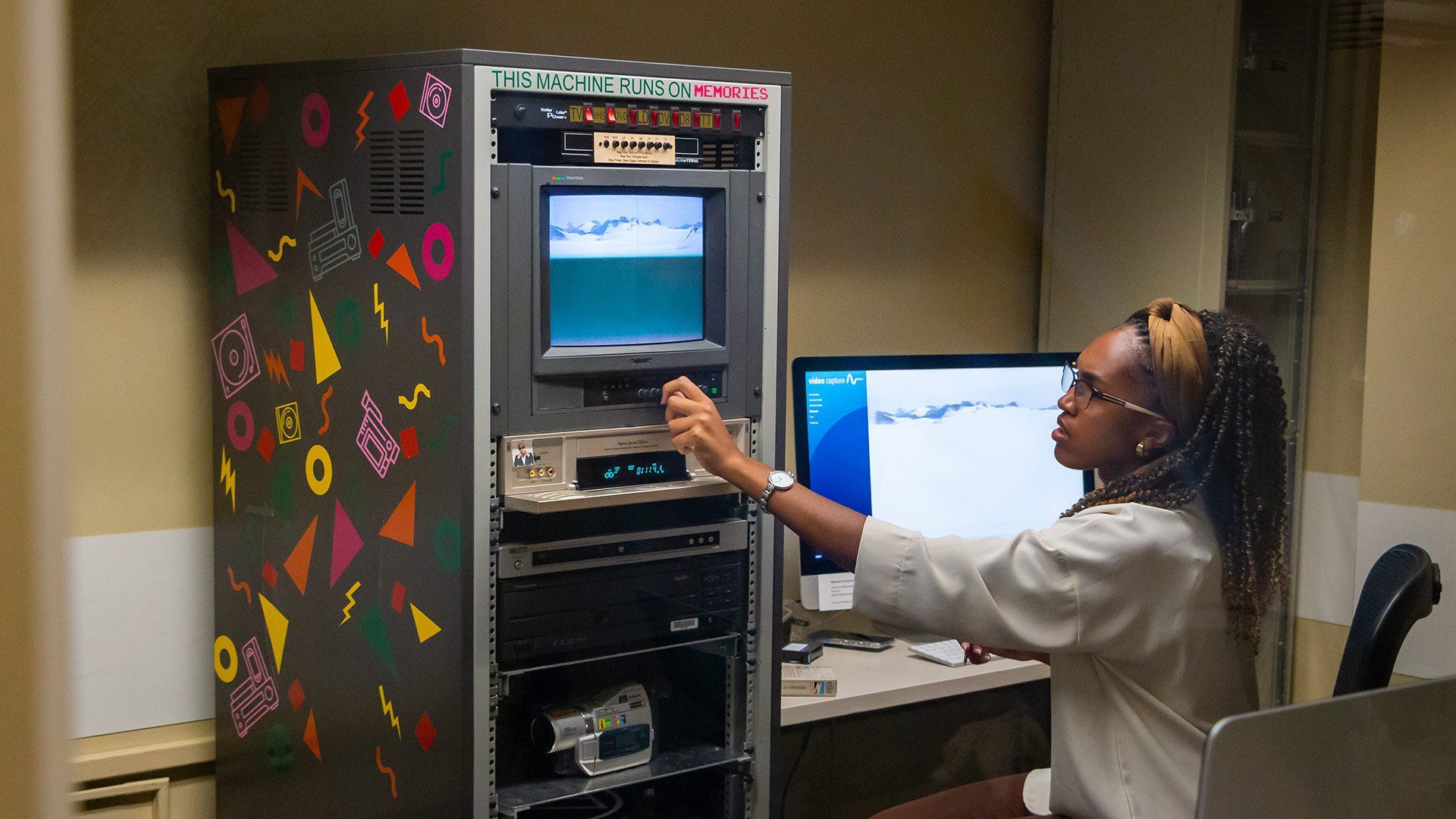- October 19, 2022
- By Karen Shih ’09
Throughout Jenna Evans’ life, their grandmother had her camcorder in hand, ready to capture everything from big family weddings to weekends babysitting Evans ’21 and all their cousins.
So when their grandmother died in early 2020, Evans (who uses gender-neutral pronouns) wanted some way to revisit all those memories. They discovered McKeldin Library’s Memory Lab upon returning to campus in 2021 after learning remotely during COVID. There, they could not only watch the tapes, but digitize them to share with family and friends across the country.
“Some of it is such bad footage, but it has that really endearing home quality,” said Evans. “When I finally finished my aunt’s wedding and shower, I gave her the digital copy for Christmas and she got to see people she hadn’t seen in 20 years. It was a really cool thing.”
That’s what librarian Sharona Ginsberg, who oversees the Memory Lab, likes to hear.
“Libraries are in the business of preserving information, so we’re helping people preserve this information that’s important to them,” she said. “We often know how to work with and convert all of these old formats because of the materials in our own collections.”
Originally developed as an offshoot of the makerspace in McKeldin, the Memory Lab has been set up for about three years. UMD community members can reserve a time to use the space, up to three hours per day. Materials that can be digitized include video tapes, audio cassettes, vinyl records, camcorder cassettes, film negatives, 35mm slides and photos.
“Essentially, physical media deteriorates, and it’s much easier to preserve it before it develops a lot of problems and you’re unable to access it,” she said. “People have brought in VHS tapes from not that long ago, and there’s already mold that’s accumulated.”
Audio cassettes are a popular item to digitize. Joey Spatafora, who takes classes through the Science in the Evening program offered by the Office of Extended Studies, recently preserved his former bandmate’s rock songs after his friend died, so he could share them with his friend’s family.
“Thank you to the University of Maryland for maintaining such ancient equipment in regular working order,” Spatafora said. “The staff was very helpful too!”
Others, like Jessica Grimmer, a project archivist for the Michelle Smith Performing Arts Library in the Clarice Smith Performing Arts Center, use the lab for professional purposes. She digitized two films on William Foster, the longtime director at Florida A&M University who pioneered the distinctive Black marching band style that permeates pop culture today. Parts of the videos are now displayed in a new exhibit on Foster’s work in the library’s reading room.
As an archivist, she could ship off the tapes to a digitization service, but she wanted to take a hands-on approach. “Being able to work with the equipment is important,” she said. “It also gives me more control over the process.”
Ginsberg said the Memory Lab is still a work in progress. Since it opened just before COVID, fewer people have used it than originally anticipated. She and her team are now working on making the space more user-friendly, such as creating booklets with step-by-step instructions. She’s open to suggestions if people have additional media they’d like to preserve.
“Not everybody can buy their own conversion kits or turntable,” she said. “We’re offering access to technologies that might be challenging to acquire otherwise, which is an important part of library values and our mission.”
Topics
Campus & CommunityUnits
University Libraries